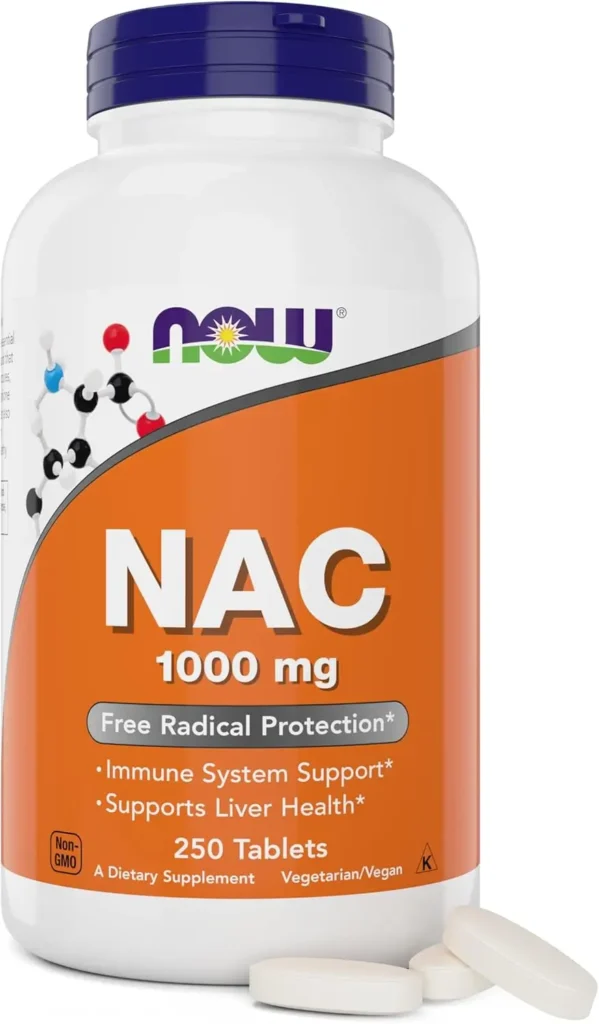NAC Vs Inositol for PCOS: Which One is Better for You?
Living with PCOS (Polycystic Ovary Syndrome) is no walk in the park. The weight gain, hormonal imbalances, mood swings, and fertility struggles can make life feel like a constant uphill battle. If you’re anything like me, you’ve probably spent hours Googling natural remedies for PCOS, hoping to find something that actually works.
Some of the most talked-about supplements for PCOS are NAC (N-Acetylcysteine) and Inositol. Both have incredible benefits, but which one is the best choice? Let’s break it down and figure out which one might be right for you.

What is NAC?
NAC (N-Acetylcysteine) is a powerful antioxidant and a form of the amino acid cysteine. It helps the body produce glutathione, which is often called the “master antioxidant” because of its role in reducing oxidative stress. Since women with PCOS often struggle with chronic inflammation and insulin resistance, NAC has gained attention as a potential natural treatment.
Benefits of NAC for PCOS
- Improves Insulin Sensitivity – According to a study published in the European Journal of Obstetrics & Gynecology and Reproductive Biology, NAC helps reduce insulin resistance, similar to the effects of Metformin but with fewer side effects.
- Supports Ovulation & Fertility – Research suggests NAC can boost ovulation in women with PCOS, especially when combined with Clomid (Human Reproduction).
- Reduces Oxidative Stress & Inflammation – Since PCOS is linked to chronic inflammation, NAC’s antioxidant properties can help lower inflammation markers.
- May Help with Mood & Anxiety – NAC supports brain health and may help reduce anxiety and depression, which are common in women with PCOS.
What is Inositol?
Inositol is a B-vitamin-like compound found naturally in foods like fruits, beans, and grains. There are different forms of inositol, but the most studied for PCOS are Myo-Inositol (MI) and D-Chiro-Inositol (DCI). These compounds play a key role in insulin signaling and hormone regulation.
Benefits of Inositol for PCOS
- Regulates Insulin & Blood Sugar – Inositol has been shown to improve insulin sensitivity, similar to NAC. According to the International Journal of Endocrinology, Myo-Inositol significantly reduces fasting insulin levels and helps with blood sugar balance.
- Restores Ovulation & Improves Fertility – Many studies, including one in Gynecological Endocrinology, have found that inositol supports ovulation, making it a great natural alternative to fertility drugs.
- Reduces Androgens (Male Hormones) – High testosterone levels cause acne, hair thinning, and unwanted hair growth. Research suggests that inositol lowers androgen levels and improves hormone balance.
- Supports Mental Health – Inositol has been linked to improved mood and reduced symptoms of anxiety and depression.
NAC Vs Inositol for PCOS: Which One Should You Choose?
Both NAC and inositol have amazing benefits, but they work in slightly different ways. Here’s a quick comparison:
| Feature | NAC | Inositol |
|---|---|---|
| Best for | Reducing inflammation, supporting fertility, improving insulin resistance | Balancing hormones, improving insulin sensitivity, restoring ovulation |
| Improves insulin sensitivity? | ✅ Yes | ✅ Yes |
| Boosts fertility? | ✅ Yes | ✅ Yes |
| Reduces testosterone? | ❌ Not directly | ✅ Yes |
| Helps with inflammation? | ✅ Yes | ❌ No |
| Supports mental health? | ✅ Yes | ✅ Yes |
Side Effects: NAC Vs Inositol for PCOS
While both are generally safe, they can cause mild side effects:
NAC Side Effects
- Nausea
- Upset stomach
- Possible sulfur-like odor in urine
- Can thin mucus (not great if you have asthma)
Inositol Side Effects
- Mild stomach upset (especially at high doses)
- Drowsiness in some people
- Can lower blood sugar too much if combined with diabetes meds
If you have low blood sugar or take Metformin, talk to your doctor before using inositol. If you have asthma, NAC might not be the best choice for you.
Can You Take NAC and Inositol Together?
Absolutely! In fact, combining NAC and inositol may offer even better results. NAC tackles inflammation and oxidative stress, while inositol directly improves insulin signaling and hormone balance. Together, they create a powerful PCOS-friendly combo for fertility, metabolism, and overall health.
Best NAC and Inositol Supplements for PCOS
When choosing supplements, quality matters. Here are some top-rated options:
Best NAC Supplement for PCOS
- NOW NAC Capsules – High-quality, easy-to-digest NAC with no unnecessary fillers.

Wholesome Story NAC – High-quality, easy-to-digest NAC with no unnecessary fillers.

Best Inositol Supplement for PCOS
- Therapix Myo-Inositol & D-Chiro Inositol Blend – The ideal 40:1 ratio of Myo- and D-Chiro Inositol for PCOS.

Wholesome Story Inositol Capsule – The ideal 40:1 ratio of Myo- and D-Chiro Inositol for PCOS.

Both of these supplements are third-party tested, non-GMO, and free from artificial additives—making them great choices for PCOS support.
Final Thoughts: NAC Vs Inositol for PCOS
If you’re struggling with insulin resistance, inflammation, or fertility issues, both NAC and inositol can be game-changers. If your main concern is balancing hormones and reducing testosterone, inositol might be the better choice. If you want to reduce oxidative stress and improve egg quality, NAC is worth considering.
For many women (myself included), taking both together has been the most effective strategy. Always consult your healthcare provider before adding any new supplement, especially if you’re on medication.
I hope this post makes it easier for you to decide between NAC and inositol! Let me know if you have any questions or if there’s another PCOS-related topic you’d like me to cover.
Have you tried NAC or inositol for PCOS? What was your experience like? Let me know in the comments!









